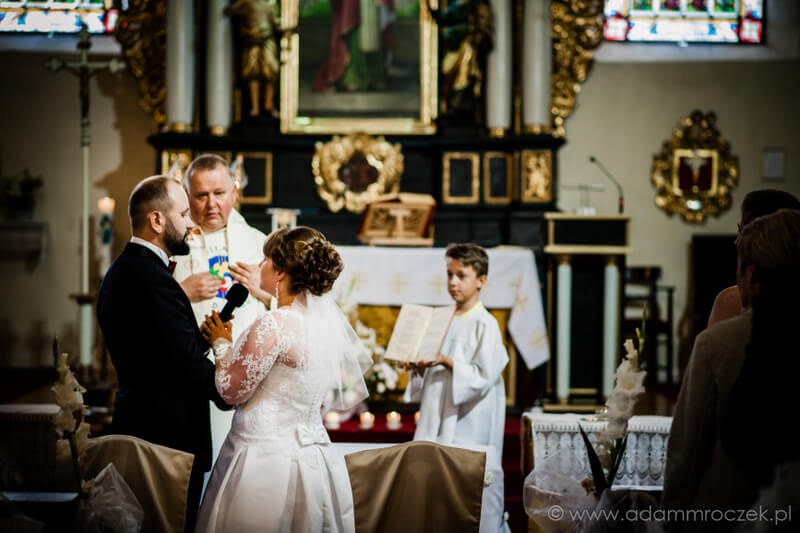When we decide to get married, we face a choice: a church wedding or a civil wedding? Of course, the decision depends on the views and life situation of future spouses, and choosing one of the options is not always obvious. However, before we book a date in a church or office, it is worth knowing the pros and cons of each of these solutions.
- Church wedding
- Civil, church, concordat wedding?
- Civil marriage
- Church and civil marriage
- Wedding form
- Civil and church wedding
- Civil or church wedding?
- Church or civil wedding?
- Unusual weddings
- Other forms of marriage
- What are the advantages of a church wedding?
- What are the advantages of a civil wedding?
- Two separate ceremonies or a concordat wedding?
- Family at the wedding
- What is the best time to get married?
- Fall or winter wedding
- Humanistic wedding - always "tailor-made"
- Church wedding in the summer
- Can an unbeliever be present during the wedding ceremony in the church?
- The most popular form of wedding among young couples
Church wedding
Many couples cannot imagine their wedding ceremony taking place anywhere other than in a church. For believers, this is an obvious solution - in this case, the only thing left to do is choose a parish. Not always the wedding takes place in the family parish of one of the future spouses. Many couples decide to organize the wedding ceremony and reception outside the place of birth and residence. Sacramental "yes" uttered, for example, in a beautiful mountain church is an unforgettable experience for both the Bride and Groom and all guests.

Remember, however, that preparations and formalities related to a church wedding take a lot of time. Therefore, to avoid disappointment, let's start planning our celebration well in advance. Especially if you decide to wedding in another parish than any of you. Then it is worth calling the parish priest much earlier and finding out what documents will be needed. This will make your task easier and will significantly reduce the number of necessary trips to agree on all the details and complete the formalities.
Civil, church, concordat wedding?
It is also worth emphasizing that the church wedding itself, from a legal point of view, has no legal force. So we have to additionally go to the registry office, or decide on a concordat wedding. It gives us the opportunity to settle all formalities right away in the church, which is why it is the most frequently chosen option by young couples. However, a large number of future spouses also decide to combine a church wedding with a civil ceremony. Why?
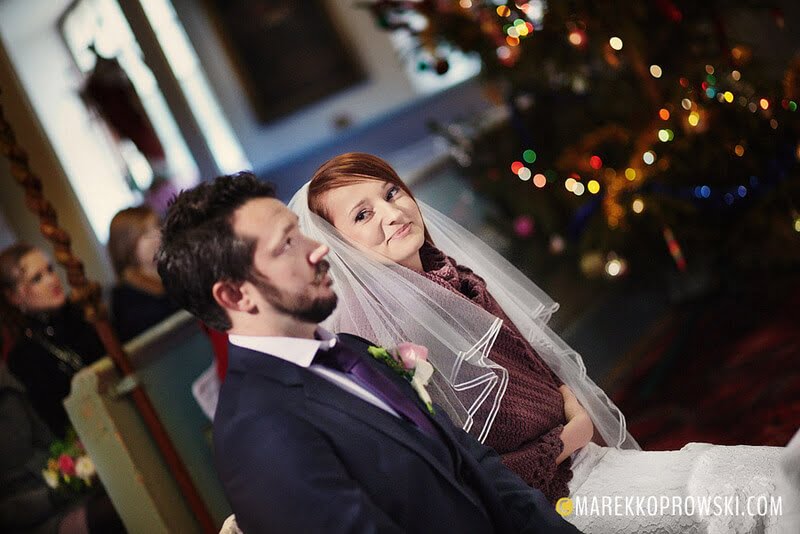
Civil marriage
Church wedding. Until 1998, when concordat weddings were introduced in Poland, a civil wedding was the only option giving legal force to marriage. This type of ceremony is chosen by newlyweds who are not religious or as an addition to a church wedding. Settling all the formalities related to a civil wedding takes much less time than in the case of a church ceremony. So it will be the best solution for those who want to get married as soon as possible. It is also the only way out for divorced people who have not obtained the so-called "ecclesiastical divorce".
Don't have time to organize a wedding?

It is worth emphasizing that civil marriage not only does it not have to take place in the area of residence, but it does not have to take place in the office building at all! As our wedding expert, Joanna Hoc-Kopiej, emphasizes: “They are very popular, for example outdoor weddings if wedding in the garden. An oath taken in the open air, surrounded by beautiful landscapes, singing birds and flowers - this is what makes civil weddings chosen by couples who have already entered into a church wedding. Remember, however, that such a ceremony will always be associated with an additional fee! – concludes the statement by a specialist in organizing weddings from Dwór Korona Karkonoszy.
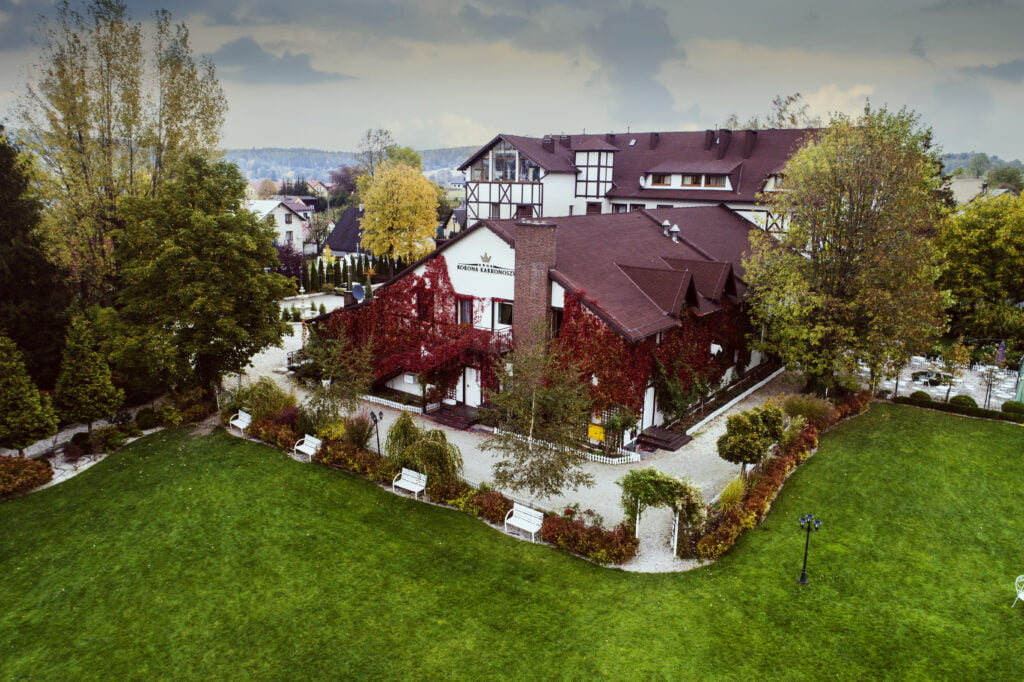
Church and civil marriage
Of course, one cannot forget about the comparison of the two ceremonies, because in both there are certain unchanging rituals, such as the marriage vows. In both cases, we cannot change the records of the oath, because then it will not have the force of law or divine power.
It is worth remembering when completing all formalities. If either of the fiancées is not a believer but has not committed an apostasy, it may turn out that the words spoken during the church wedding will not have the appropriate legal force. Similarly, if one of the engaged does not agree with the words of the oath, which is pronounced on the wedding carpet.
Wedding form
A church wedding and a civil wedding also differ in form - a church or concordat wedding is based on faith, so the sacrament itself is a more emotional ceremony. A civil wedding, on the other hand, is solemn - it is administered by an official and explains what marriage is from the point of view of the law. In the church, however, the priest considers marriage in terms of divine law.
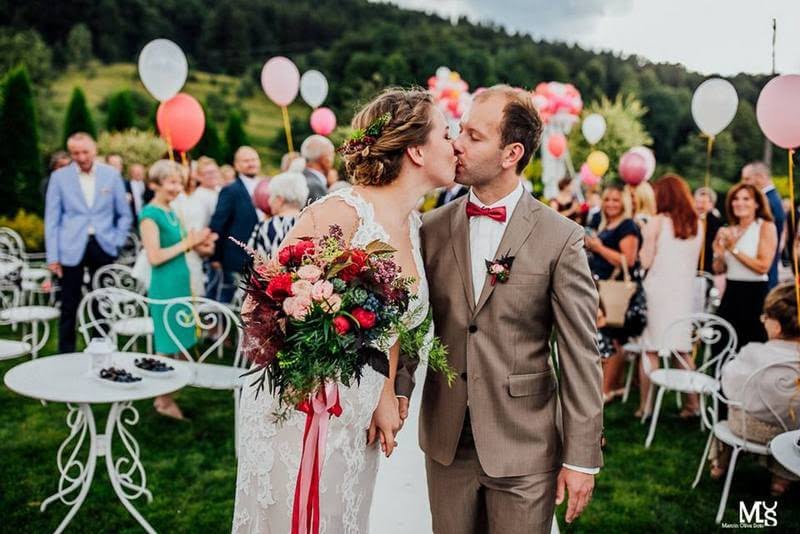
Of course, more and more often it happens that the priest who celebrates the mass also focuses on legal aspects. He tries to explain to the young couple future obligations and rights resulting from the institution of marriage. In this way, the line between the two celebrations is blurred. However, the most important elements of a church or concordat wedding are still preserved, such as focusing on faith, spirituality and feelings.

Civil and church wedding
Civil and church wedding? Which option is better? If you care about an outdoor wedding, it will be difficult in the case of a church wedding. However, not impossible! Outdoor church wedding it is certainly more difficult to organize for formal reasons, since it should be held on consecrated ground. Therefore, many couples who cultivate their Christian traditions on a daily basis give up this possibility because they dream of getting married in a beautiful place, for example by the sea or in a mountain valley. However, you can consider an open-air chapel or a place where masses for pilgrims are celebrated. Or areas belonging to a parish or church - even a cross outside.
In the case of a civil wedding, there are no such problems - all you need to do is submit the appropriate application and the aforementioned fee to make your long-awaited dream come true.

You can also make your dream come true while getting married in a church. It is enough that the concordat wedding will not take place in the church. Then the Bride and Groom can separate both celebrations. Just as it was for many years in the Polish tradition.
Then, the relationship is first concluded in the church, where the engaged swear before God love, fidelity and marital honesty until death. Then you and your guests can go to a beautiful place that has been previously chosen especially for this celebration.
You can also get legally married first and then go to the church for the wedding ceremony. This order is chosen especially by those young couples who want to spend some time on this important day just for two. Then only the fiancés, witnesses and immediate family participate in a civil wedding. Only future spouses and a pair of witnesses can also be present. It depends solely on the will of the Bride and Groom.
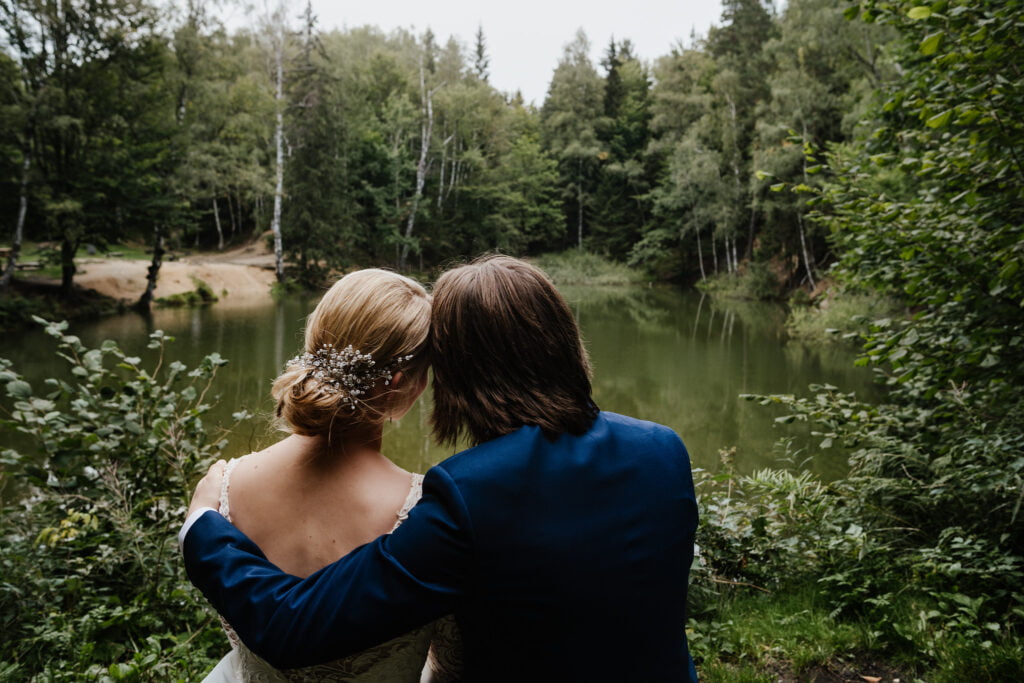
Civil or church wedding?
Civil or church wedding? We should also remember that in the case of a wedding outside the home parish, we are obliged to obtain the necessary information and documents from it. This includes baptism certificate, confirmation certificate and a certificate of completion of a premarital course. At the time of the wedding in the family parish of one of the spouses, the other is obliged to provide all this information to the parish where the ceremony will take place.
Usually, according to tradition, the wedding takes place in the bride's parish. Therefore, the Groom should provide all the necessary documents from his parish. In addition, the engaged couple must provide the necessary documents from the Registry Office. So that everything is in the bride's parish before the ceremony begins.
Church or civil wedding?
For a civil marriage, we do not have to provide such documents. All you need is abbreviated birth certificates of the spouses, identity cards, and in the case of widowers or divorcees, marriage certificates and copies of the divorce judgment or the spouse's death certificate.
In both cases, there are several documents without which verification of persons wishing to get married would not be possible. Therefore, before you decide whether you want to organize civil or church wedding, it is worth considering only the intention and personal motives.
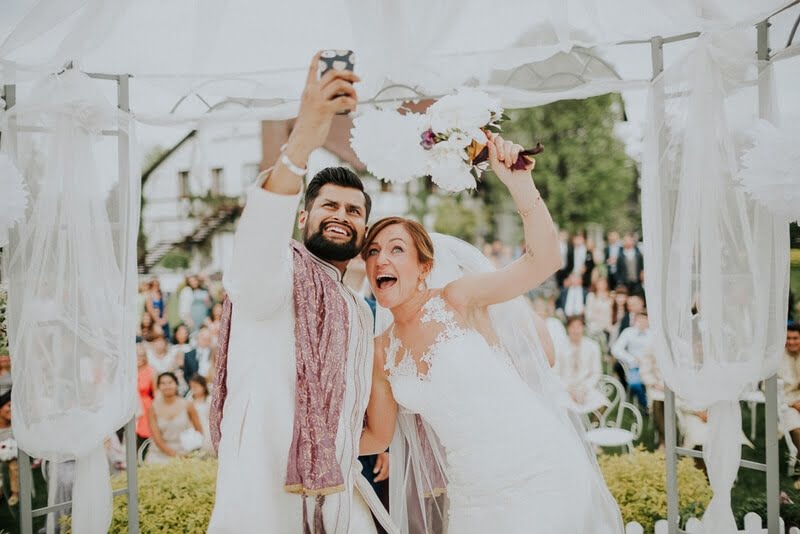
The number of documents that we have to provide is not much different in both cases, apart from the certificate of premarital education necessary for a church wedding. It is certainly necessary to visit your parish and the Registry Office. However, in the vast majority of cases, all officials and clergy support the bride and groom in these difficult formalities and make it easier for them to obtain all documents.
Unusual weddings
Church, concordat and civil weddings – Young couples in our country most often choose one of these options. But these are not the only possibilities. Mixed wedding for example this wedding ceremony of people of different religions. Each religion specifies in detail the requirements and commands related to the conclusion of such a marriage. Depending on the religion, it may even turn out that a church wedding in some cases will not be possible - then the only thing left for the fiancé is to conclude a civil wedding.
Other forms of marriage
It's a little known option marriage by proxy – it can be both civil and ecclesiastical. Until recently, it was the only possibility to get married outside the registry office building. For such a wedding, the engaged couple must obtain special permission from the court, and each application is considered individually. A proxy wedding is, of course, an extreme case when, for example, one of the fiancées cannot physically attend the wedding venue due to their health condition.

Whereas humanist wedding is gaining more and more popularity, both in Poland and throughout Europe. However humanist weddingsSimilarly to church weddings, they have no legal force in our country, which is why they are most often combined with a civil wedding. What does such a ceremony offer the young couple? First of all, a humanist wedding gives us full control over how the wedding ceremony will take place. The bride and groom can compose the words of the oath, include their favorite music, poetry recitation, etc. in the ceremony - we are only limited by our own creativity. We can also choose the place of the wedding depending on our own preferences - it can be the place where we met, our favorite pub or a clearing in the mountains. This allows us to create a unique and original ceremony that is fully tailored to the personality and tastes of the Bride and Groom.
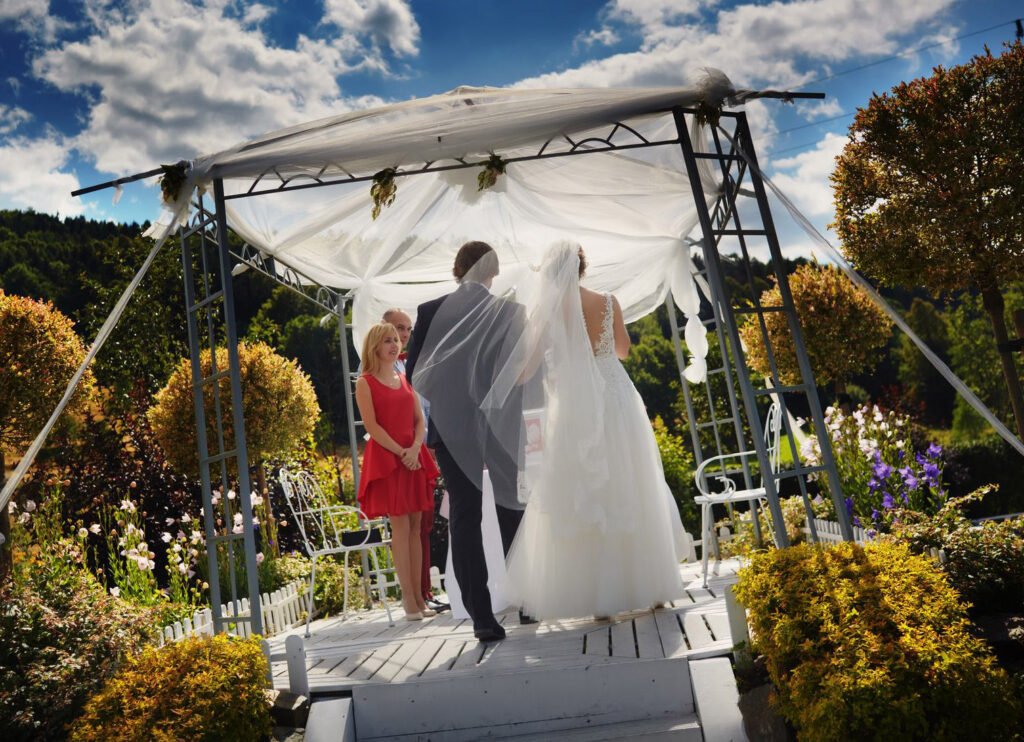
What are the advantages of a church wedding?
Church wedding is still one of the most popular forms of getting married in Poland. This is mainly due to the numerical superiority of people who declare themselves to be believers in our country.
Faith continues to play an extremely important role in the lives of many people. After a church or concordat wedding, a married couple can baptize their child without any obstacles. They are also considered a family under both civil and church law. This is very important for many brides who are firm believers.
A church wedding is also a celebration that we all know and associate with this special day. A long white dress, flowers or a celebration with beautiful words. All this can be had during a church wedding. But in the case of a civil wedding - also!
Many people who get engaged, even if they do not practice their faith on a daily basis, immediately assume that they will have a church wedding. This is due to tradition, rooted in our culture for many centuries. That is why some brides do not decide to have a church wedding because of their faith. They consider it a continuation of the family tradition, which consists in concluding a marriage within the walls of the church.
What are the advantages of a civil wedding?
A civil wedding has many many advantages. So far, it was considered only as an addition to a church wedding. It was also decided by much fewer people than the church or concordat. However, its popularity has been growing significantly in recent times. This is due to the fact that more and more young people stop declaring themselves as believers and practitioners. They disagree with many of the teachings of the Catholic Church. Therefore, they decide only to have a civil wedding, which is valid under civil law.
Another advantage of a civil wedding is its short preparation time. As we have already mentioned, many people do not want to spend a lot of time on the ceremony. They consider it only a formality that will seal their life together in one apartment anyway. For such fiancées, a civil wedding is a quick way to get married and formalize the relationship. This argument is especially made by those people who have been living together for many years. If they decide to have a child or buy a flat, it is much easier under the law to complete all the formalities as a married couple.
A civil wedding is also a formality that must be completed for any marriage that will be valid under the law. If a married couple wants their relationship to be formally recognized, it is necessary to decide on a civil wedding.
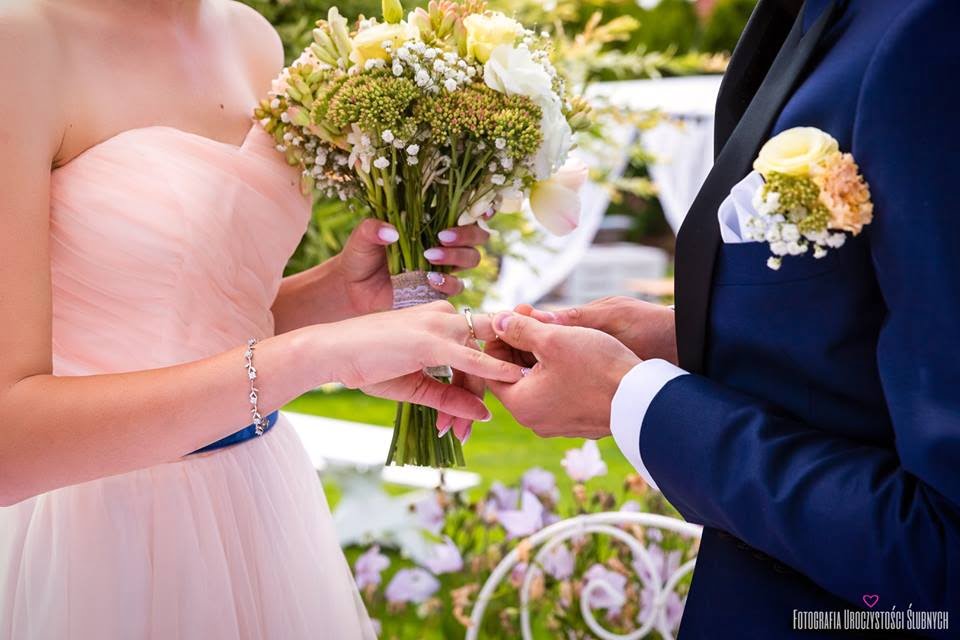
Two separate ceremonies or a concordat wedding?
Let's check again what it is concordat wedding. It is a ceremony that takes place in the church, but it also has legal force due to the documents provided and signed by the bride and groom. This is a great convenience for those who do not want to spend time on two separate ceremonies, travel to the Registry Office and the church, and double formalities.
However, does a concordat wedding really have only advantages, and separate ceremonies only disadvantages? It turns out not. It all depends on the brides' preferences, their plans and the day on which the wedding takes place.

Some young couples still decide to separate the civil and church weddings. Most often, these two celebrations take place at different times. What are these situations?
Most often, the separation of the civil and church ceremony takes place when the bride becomes pregnant before planning the wedding. As we have already mentioned, the number of formalities in the case of a civil wedding is much smaller. That is why some brides decide to get married during a modest and small civil wedding.
Family at the wedding
Most often, the young people are accompanied by people from the immediate family, such as parents or grandparents and witnesses. The rest of the family is invited to the wedding, which takes place after the church wedding, when the child is born. In this way, the engaged couple can expect a baby without worrying about legal difficulties. On the other hand, at the wedding, both can have fun as well, because the bride is not pregnant, which could affect her well-being.
Another well-known case when the Young Couple decides to have a civil wedding much earlier than a church one is when one of the brides is seriously ill. In this case, a formal problem may arise in the hospital. Even if young people live together but are not married, one of them cannot know the health of his partner without the necessary consent.
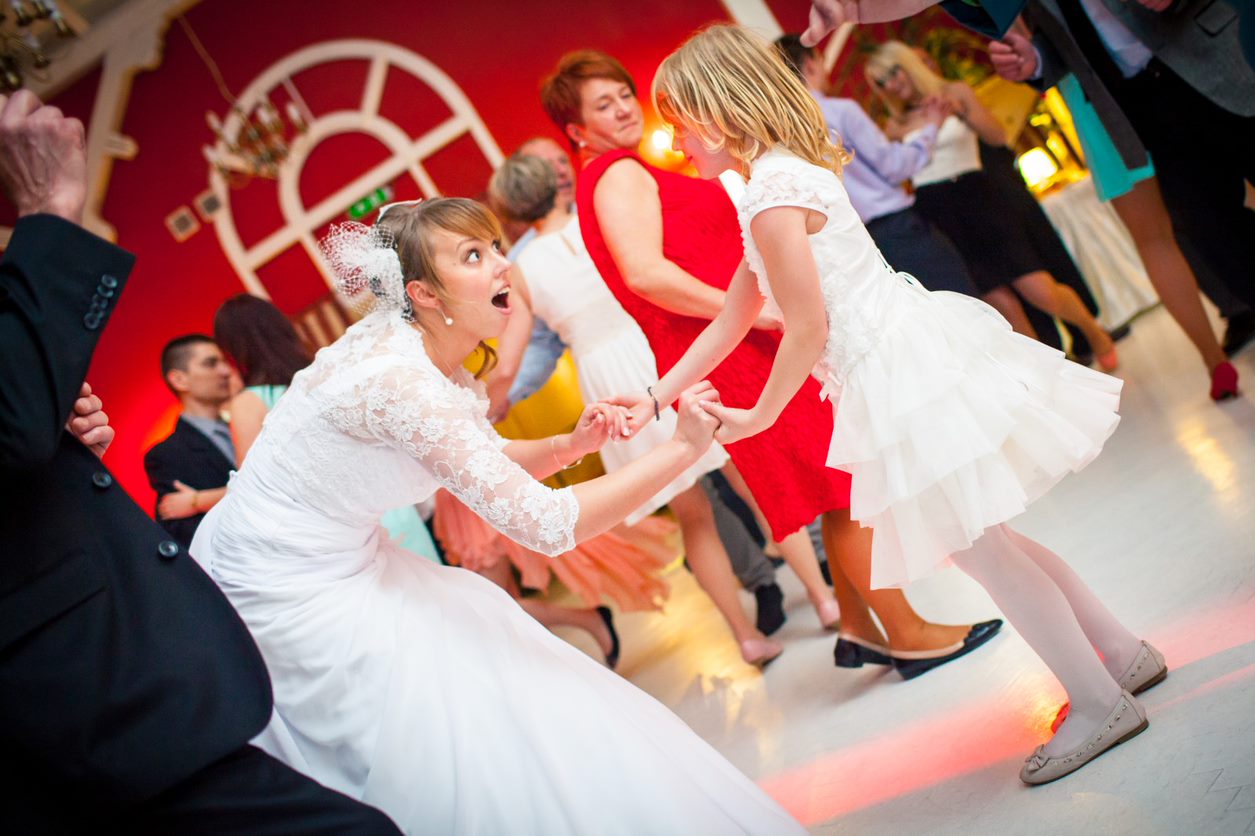
It happens that filling in such a form is impossible due to the rapidly deteriorating health of the patient. Therefore, when a serious, serious illness is detected, the engaged couple very often decide to get married at the Registry Office.
If both are believers, the church wedding takes place after recovery. Then we can also organize a grand wedding. Celebrating a marriage and recovery at the same time is a great opportunity to organize a celebration in an unusual place, for example weddings in the mountains.
Answering the question at the beginning of the paragraph, the separation or combination of a civil and church ceremony is strongly dependent on the personal situation of the engaged couple and their personal preferences.
What is the best time to get married?
Not long after the first question to the brides, which is "when is the wedding?" another one appears. What time do you want to hold the ceremony? This is often a much more difficult question than the date one.
The month of the wedding and reception is easy to choose. We all have our favorite month. Now the only challenge is to choose one that suits both the bride and the groom. But what about the time of day? There are many factors to consider when planning your special day.

Fall or winter wedding
When is the wedding? This question is asked by many young couples. In the case of an autumn or winter wedding, it is worth choosing earlier hours. Winter wedding best to start at 14.00 or 15.00. At this time of year it gets dark quite early, so the wedding will be in a moody atmosphere. However, it will still be bright outside after leaving the church.
Thanks to this, the photographer has the opportunity to take beautiful photos during the ceremony and when leaving the church or the Registry Office.
Humanistic wedding - always "tailor-made"
In the case of a humanistic wedding, the time depends on the plans of the bride and groom. If the vows will be made on the beach, in the forest or in another similar place, it is worth betting on the wedding in the hours when it is still light. On the other hand, some brides may dream of a wedding by candlelight and lanterns. Then in autumn and winter it is worth waiting until 5 pm, when it is completely dark.
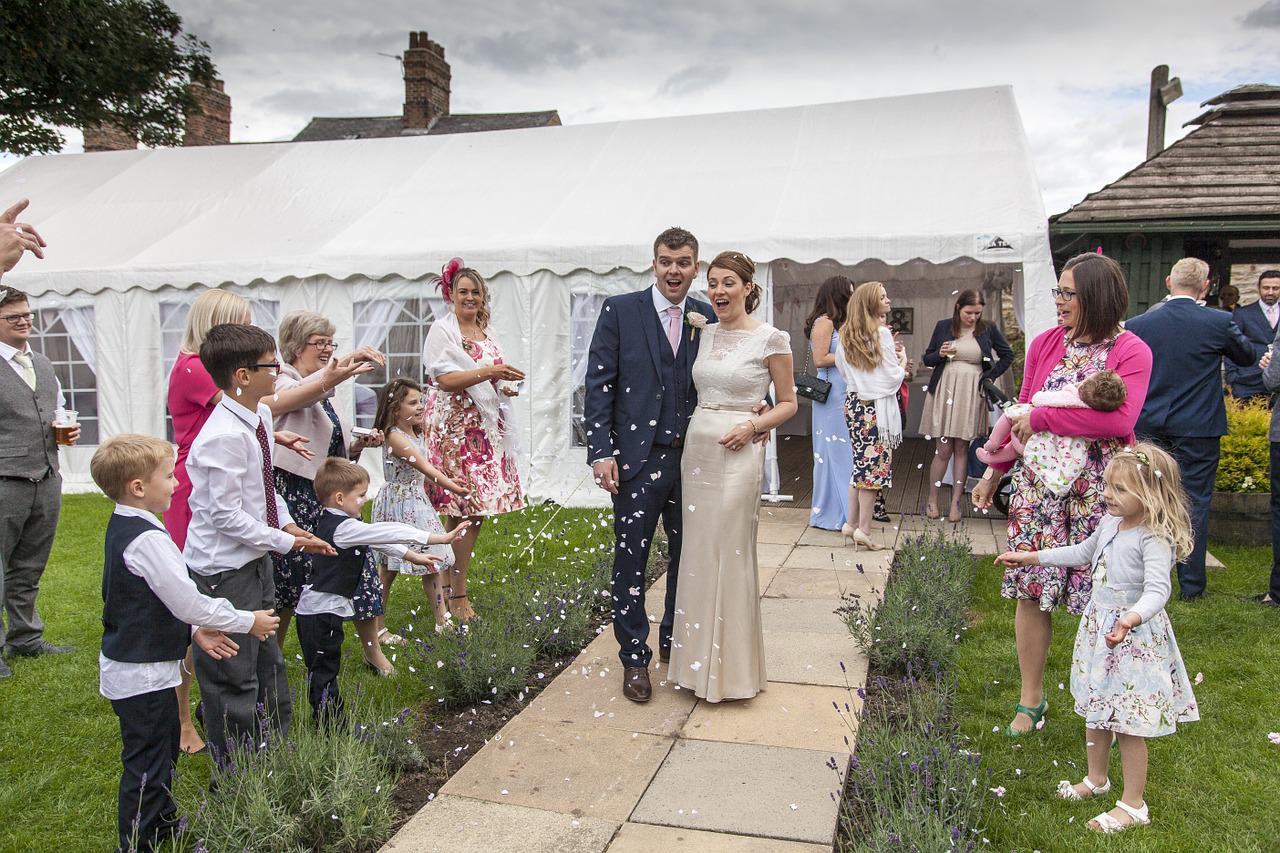
Church wedding in the summer
In the summer, the Young Couple has much more room to show off when it comes to the time of the wedding ceremony. The sun stays in the sky longer, and it gets dark even around 9 pm. Therefore, in spring and summer, for example, taking wedding in July, it is worth choosing later hours. For example, the time between 16.00-17.00.
This is the perfect time for those who don't want their wedding to end too soon. Certainly, all guests who will appear at the wedding will stay at least until 1.00 or 2.00 am.

Therefore, if you want a long party and marriage ceremonies in beautiful natural circumstances, decide to have a wedding during the holidays. Then remember that the wedding can take place much later than in autumn or winter.
As in the case of the decision regarding the place and nature of the wedding, the opinion of the bride and groom is the most important when it comes to the date. However, when deciding on a church wedding, it is worth remembering that not in every parish it can take place during a standard mass. In fact, in the vast majority of cases, the wedding ceremony takes place outside of standard hours. So that the parishioners have the opportunity to participate in a classic mass, and the Young Couple can focus on experiencing this special day only with their loved ones.
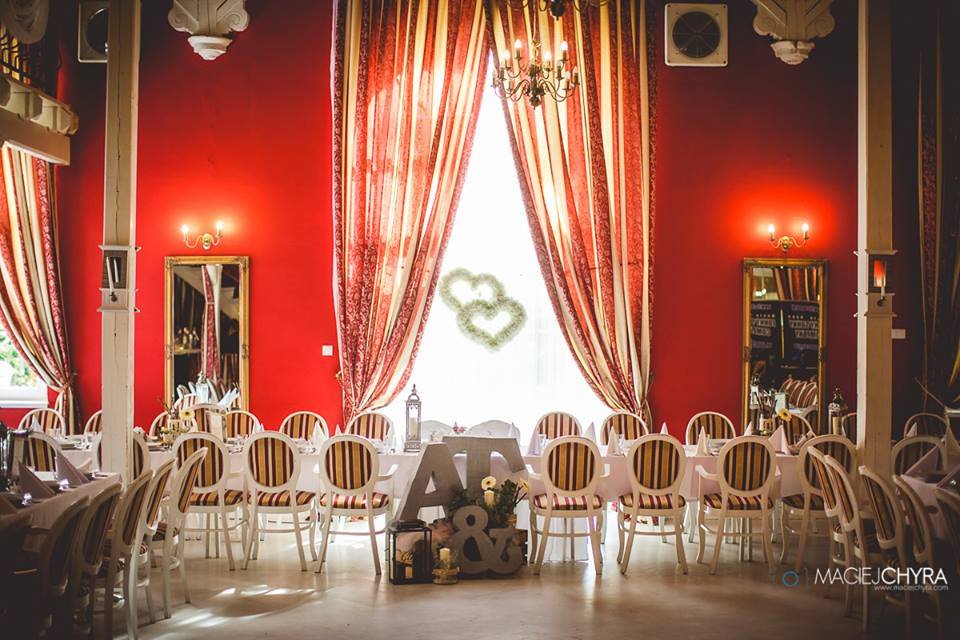
Can an unbeliever be present during the wedding ceremony in the church?
It happens that the engaged are believers and want their wedding to take place in a church. Then they decide to have a church ceremony or a concordat wedding, i.e. a combination of a civil and church wedding.
The question then arises about non-believing family members. What if one family member is not a believer? This question is asked especially in the case of parents or godparents who have left the Church. And yet they want to be participants in an important event in the life of the Bride and Groom.
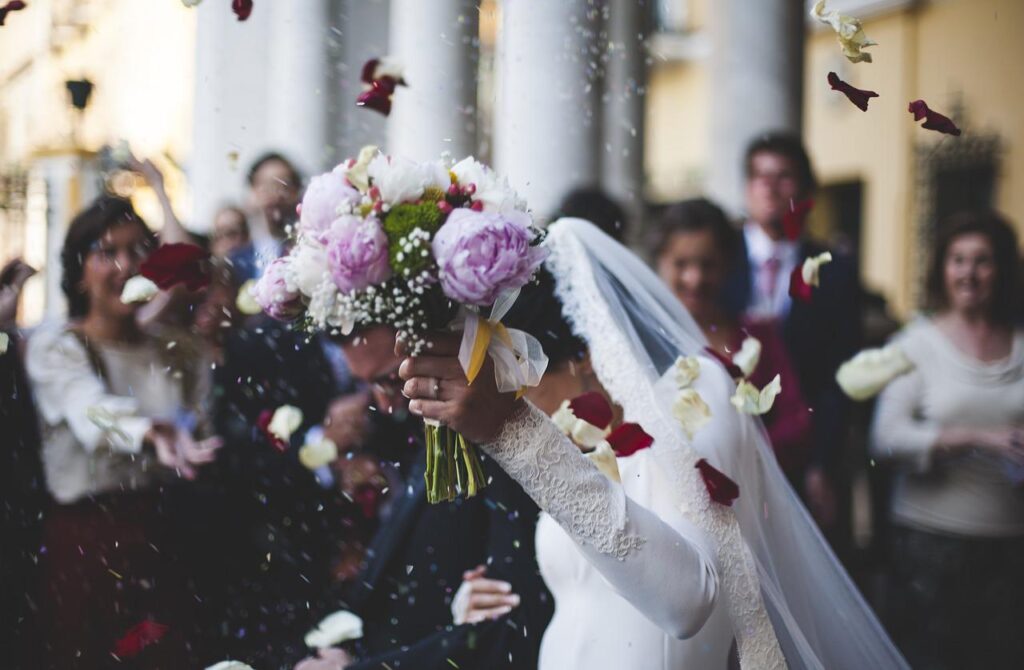
If the bride's father is an atheist, he has no way of walking his daughter down the aisle. This is a custom that has been borrowed from Western culture, but many young couples are happy to repeat it.

However, if any of the guests are non-believers but want to be part of the wedding ceremony, they are allowed to do so. The Catholic Church has adopted the principle that no one should be asked to leave the church. Even a non-believer has the right to stay there. However, such a person cannot receive Holy Communion during Mass. You should also maintain an appropriate attitude and respect the religious feelings of people who actively participate in the wedding ceremony of the Bride and Groom.
The most popular form of wedding among young couples
It happens that the Young Couple is not sure what kind of wedding will be suitable for them. They may feel lost and torn between their beliefs and expectations and the traditions of their families. Families often push hard for the wedding to take place in a church, even considering no other option.
In this case, it may turn out that a good solution is to check the trends among brides. Church or concordat weddings still constitute the largest percentage of selected ceremonies.
However, they have become increasingly popular in recent years humanist weddings. This is mainly due to the great freedom and the possibility of interference in the arrangement of all elements that make up the entire ceremony.
Regardless of which wedding the Young Couple decides on, it should be in line with their beliefs and expectations. Then it is valid in the light of the law and must be recognized by all church institutions - in the case of a church or concordat wedding and state.

Frequently Asked Questions
Which wedding is more important - church or civil?
It is impossible to unequivocally answer the question of which wedding is more important - church or civil. From a legal point of view, only a civil marriage counts. On the other hand, for deeply religious people, a civil wedding is just a formality, because only the oath in the church is binding for them. So it all depends on our approach. Many young couples have a church wedding only because of tradition, family expectations or the solemn setting they count on. However, nowadays also civil weddings are wonderful celebrations. Especially since you can take them in some charming place of your choice, not necessarily at the registry office. Although these are also more and more often offering weddings to young couples in historic, beautifully decorated wedding palaces, and not in ordinary offices.
Is it worth getting married in a church?
A church wedding is an important ceremony, but only for believers. It is not worth taking if it is not important to us for religious reasons. The church wedding itself also has no legal force, unless we enter into a concordat wedding – a combination of a civil and church wedding. However, if we only care about the setting that accompanies church weddings, remember that now you can also have a civil wedding outside the office, in a place of your choice. Do we have a favorite clearing in the mountains? Or a beach or a park? There, we can also get married in front of a USC official. And we will take care of the appropriate setting for the wedding, in the style that suits us.
Why is it worth getting a civil wedding?
A civil marriage is a marriage that has the force of law. So, if we care about joint tax settlements, trouble-free inheritance (although hardly anyone thinks about such matters at the time of marriage), we plan to have children and we want to avoid unclear situations - let's get married in a civil ceremony. This is the easiest way to legitimize our relationship in the eyes of the law. However, if we do not care about the formal approval of our life together, we can also have a church or humanist wedding. It is an individualized ceremony, during which we invent the wedding vows and decide on the setting.
Does a church wedding have legal force?
In Poland, a church wedding has no legal force. As Poland is not a religious country, only a civil wedding has legal force. Alternatively, we can opt for a concordat wedding, i.e. a ceremony that combines a civil and church wedding. This type of wedding is concluded in a church, and the priest performing it is obliged to report the fact of the marriage to the relevant registry office.
